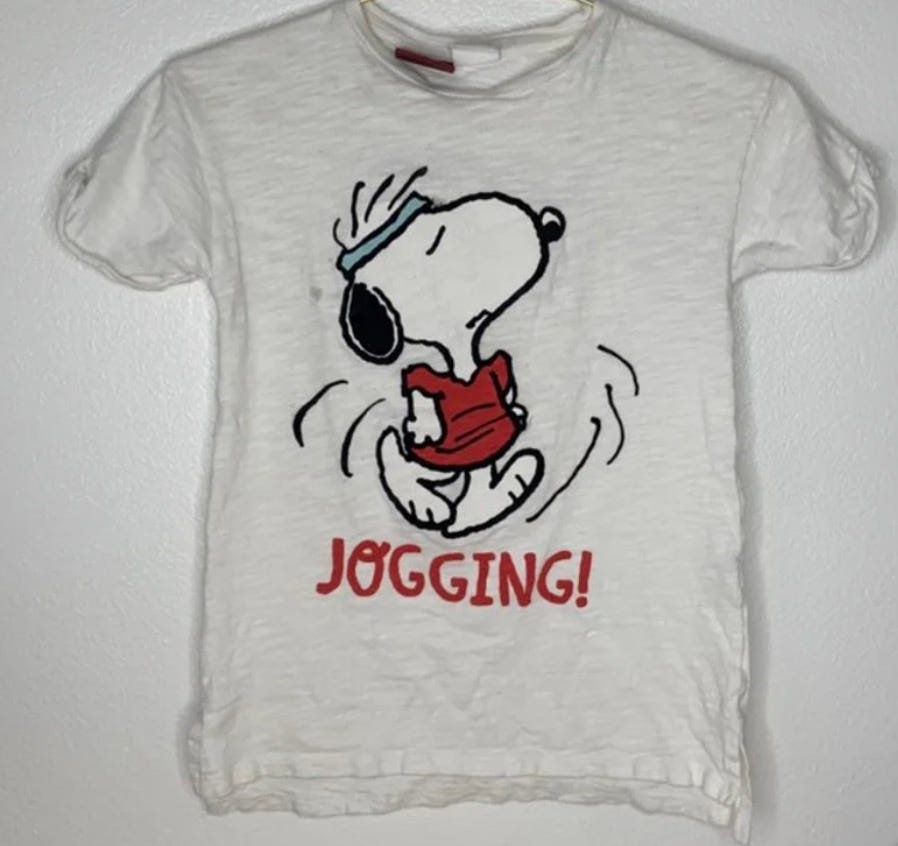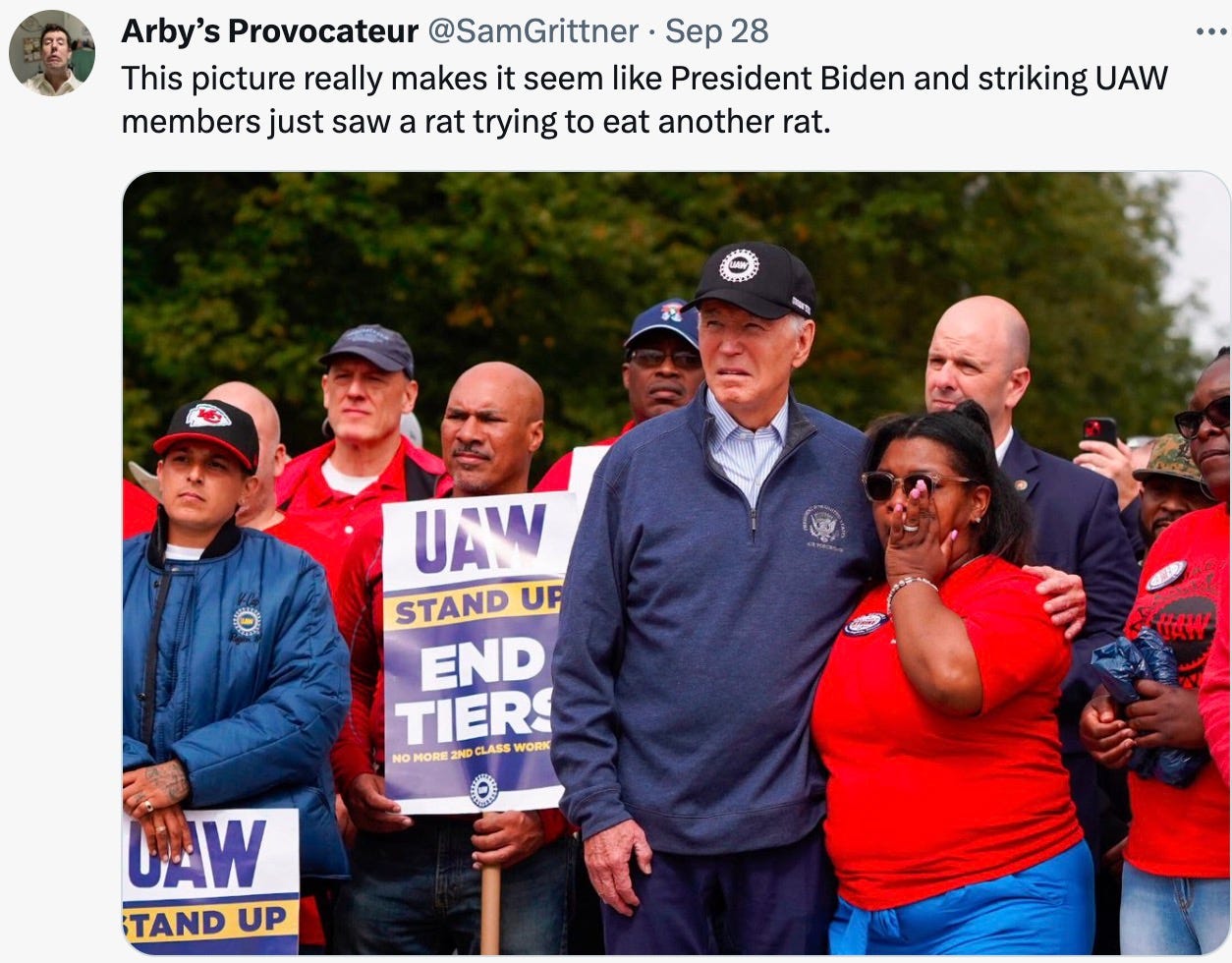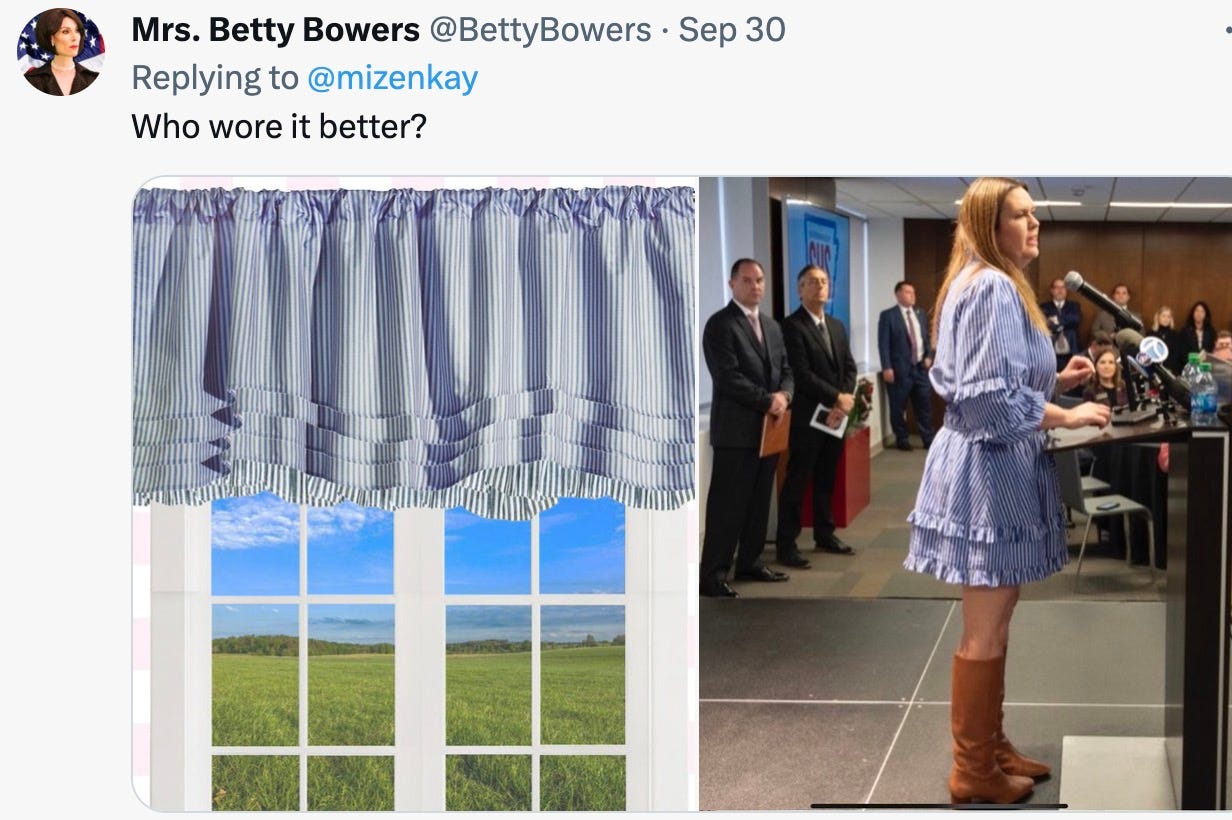To read this issue in your browser, click on the headline above.
Eric Zorn is a former opinion columnist for the Chicago Tribune. Find a longer bio and contact information here. This issue exceeds in size the maximum length for a standard email. To read the entire issue in your browser, click on the headline link above. Paid subscribers receive each Picayune Plus in their email inbox each Tuesday, are part of our civil and productive commenting community and enjoy the sublime satisfaction of supporting this enterprise.
Bylines at last on CWBChicago!
..or a byline, anyway.
The secretive local crime-news website now credits Tim Hecke with having written nearly every story on the site going back to September, 2019.
The Web Archive shows that the byline has been added retroactively. Here’s what a certain story looked like a couple of weeks ago:
And here’s how that entry now looks:
I chided the site for its secrecy a year ago in “Come out, come out, CWBChicago!” and defended that critique against an onslaught of reader dissents in “CWBChicago, a follow up.” My quarrel was not with the accuracy of the information CWB published or that it was covering frightening stories of mayhem that mainstream media often downplays. My argument was that the site had gained quite a bit of local prominence and:
Accountability matters. CWBChicago began as a crusade to hold police accountable, and it strikes me as hypocritical, not cowardly, for the people behind the publication today not to be willing to be held accountable for their work, as true journalists are.
Answer your critics and defend your work, not through anonymous social media accounts but in person. Come out from the shadows.
Hecke declined my interview request at the time, even my request that he explain why he wouldn’t give interviews. Now he posts a short bio to the site:
Tim Hecke is CWBChicago's managing partner. He started his career at KMOX, the legendary news radio station in St. Louis. From there, he moved on to work at stations in Minneapolis, Chicago and New York City. Tim went on to build syndicated radio news and content services that served every one of America's 100 largest radio markets. He became CWBChicago's managing partner in 2019.
It’s oddly vague. Which stations in those other cities? What are the names of the “syndicated radio news and content services” that he built?
Hecke did not return my requests for comment Monday, though (UPDATE) he told Chicago Public Square proprietor Charlie Meyerson that putting his byline on nearly every story was an error. He took his byline off the jogger story above and replaced with the generic “CWBChicago.”
That said, a tip of the press fedora to Hecke for “Cook County judge with ‘no writing’ rule orders CWB staffer to stop taking notes in court, running afoul of chief judge’s order, federal opinion.” in Monday’s feed. He blew the whistle on a presumptuous and ignorant judge who didn’t seem to understand that we administer justice in public here in the United States. Hecke wrote:
Journalists have no greater right to take notes in court than you or anyone else.
“The right of the press to access court proceedings is derivative of the public’s right, and inside the courthouse, the press has no greater rights than those of the general public,” U.S. District Judge Elaine Bucklo wrote in Goldschmidt v. Coco.
In other words, people have the right to take notes in court. And the reason journalists can take notes in court is because they are people, not because they are journalists.
Well said.
Who you calling a “jogger”?
The headline on the above item set me to thinking about the difference between a “jogger” and a “runner.” I’m sensitive to this because, to me, “jogger” sounds dilettantish and ploddingly slow, while “runner” suggests a certain fleetness and dedication.
Yet when I searched for the distinction online I found numerous claims that the dividing line between jogger and runner is a pace of 10 minutes a mile. Below that you’re a runner. Above that, a mere jogger.
I laced up the spongy shoes last November to try to work myself back into basketball shape when the doctor who’s been treating me for a blocked left femoral (leg) artery for the past eight years gave me the all clear to give it a go. I can now run one mile in under 10 minutes, but the second mile and beyond put me well into jogging territory.
Notes and comments from readers —lightly edited —- along with my responses
Last week I posted a news item about drag shows and noted, “I’ve never understood anything about the drag phenomenon: Why does anyone consider it entertaining or, for that matter, threatening? And yes, I’ve been to a drag show. After about two minutes of watching men swanning about dressed convincingly as broad caricatures of women — often trafficking in the most bizarre stereotypes of femininity — I couldn’t have been more bored. Generally in today’s cultural environment when members of a dominant group adopt the attire, mannerisms and vocal stylings of an often marginalized group, we consider it offensive cultural appropriation, no matter how respectful the intent. When it comes to drag, though, such sensitivities evidently don’t exist. I truly would welcome a thoughtful explanation/defense of drag.”
Here are some of the responses
Patricia C. — Gay men are not 'members of a dominant group.' I believe drag is an homage from one subordinate group to another, eg, women. Mocking, in a loving way, the traditional feminine role. Which is why the right hates it, other than being another culture war opportunity. It sends up the whole idea of rigid biologically determined gender roles.
Zorn — I was under the impression that drag queens were neither transgender nor necessarily gay -- that "cross-dressing," if that's still an acceptable term, was not an expression of homosexuality, if that is still an acceptable term. But my impression may be wrong.
Regarding appropriation, I was also not aware that being a member of one subordinate group is license to pay homage/gently mock/imitate members of another group. To wit, a gay man isn't free to wear blackface makeup or put on a sombrero and talk like the Frito Bandito. Or?
Jo A .— Like Eric, I am neither offended nor very interested in drag. However I did enjoy watching about 10 minutes at an outdoor restaurant’s drag brunch on a recent trip to Provincetown. It was great to see the happy crowd filled with families ( yes , many children) in a place that celebrates the LGBTQ community. It was such an upbeat vibe and the performers walked through the crowd lip syncing and hamming it up. It was a pleasant background to the delicious food and the sunny day. But I ( a woman in her 60’s) had zero interest in really paying attention to the performers for more than a few minutes. Couldn’t imagine going to a show where they were the focus on a stage. I’d be bored.
David L. — Growing up in Minneapolis many decades ago, there was a very prominent entertainment venue on Hennepin Avenue named the Gay 90s that prominently featured a drag review weekend nights. And you know what? Even in those much more conservative times, absolutely nobody had a problem with it. I believe the prevailing sentiment was something like, “If men have a fetish for putting on garish makeup, dressing up like women and acting campy, no skin off my nose.”
But drag became a radioactive social issue when drag performers and others made a push to insert them into schools and libraries for the express purpose of exposing them to young children. And all too often, these men do not dress in drag in the conventional female clothing, but rather very provocatively with unmistakable references to sexualization. And that's the incendiary element, sexualization of young children.
One wonders why there is such a push to expose young children to a drag fetish when you do not see any apparent push to expose children to people with other fetishes like a foot fetish, leather fetish, etc. Also, a very troubling question is why do these men have such a burning desire to be around young children in drag??
I believe that the overwhelming majority of people in our society have no problem with adults engaging in whatever consensual activity they wish. But it is completely different when there is an obvious attempt to involve young children in them.
Men who find gratification in dressing as women is indeed a fetish as are men who find gratification in looking at and touching feet, etc. But why is it that only men with this cross dressing fetish have such a strong desire to engage in it in the presence of very young children? That's what most people find troubling.
Zorn — A library event that parents can bring their children to is fine with me as long the parents know what the show entails. Libraries host lots of events for the willing. I see no particular educational value in drag shows and so don't see how they're appropriate for schools.
I do think there's value in teaching children to accept people of other gender expressions just as I think there's value in teaching children to accept people of other races, ethnicities, abilities and so on. But I fail to understand why drag -- which is a fairly extreme, campy manifestation of LGBTQ -- is an optimal or even wise way to introduce that to children.
I do resist the idea that this is an attempt to "sexualize" young children and the implication that some pedophilia might be involved. I further challenge your use of the word "fetish" here to describe what may be simply a form of cosplay.
Peter Z. — Exposing kids to drag queens is a really bad idea.
First exposing kids to any adult in a costume is dicey. Take clowns for example, some kids love them, others are traumatized. Everyone sees the wide reactions of kids to Santa Claus or the Easter Bunny.
Many schools and libraries have Police in uniform give talks to kids so that they know and accept them. Part of this process is to build up trust.
Now along comes a drag queen discussing whatever to a bunch of kids. One message that comes out — that person looked like a woman but really was a man. How does that build trust in children?
Do not see anything constructive here. Let kids grow up before having them deal with this issue face to face.
Joanie W. — I’m not a big fan of drag. I think it is a little like blackface, and that it is disrespectful to women. The drag performers I know generally channel our culture’s most sexist stereotypes of women in their performances.
Another thing I don’t like about drag is that some people conflate drag with being transgender, and they tend to think that being transgender is performative, rather than a matter of identity.
That having been said, there is a history to take into account. Drag provided an outlet for LGBTQ+ people in an era when it was toxic to be out of the closet. And some transgender people who couldn’t come out of the closet used to do drag--it was a forum in which they could at least come close to experiencing their true selves without devastating personal consequences.
I had a very dear friend who was a drag queen in Chicago named Cookie Crumbles. She never was able to come out--to live her life authentically away from the stage and after-parties as the person she was. She died of pancreatic cancer. I visited her and her partner shortly before she died, and I remember being sort of overcome with sadness that even the members of her family never knew who she really was.
There is an implication in some of the comments by the extreme conservative readers/commenters here that people that do drag are pedophiles. For example, David L. writes, “[A] very troubling question is why do these men have such a burning desire to be around young children in drag??” with two question marks no less!
Isn’t it possible that they volunteer for drag queen story hour, not because they are pedophiles, but because they hope that when the children grow up, they will be more accepting of gender variant people than folks like David L. , so that people like Cookie Crumbles won’t have to live their entire lives off the stage as someone they are not?
Zorn — Joanie, who is a transgender attorney in the near western suburbs. participated in an online dialogue with me in 2022.
Nancy M. —No one has mentioned what seems to me the obvious reason kids might enjoy drag shows: They enjoy playing "dress-up" and so understand why adults might want to play that too. Flamboyant, outrageous clothes, unlike the boring stuff adults wear in public, are the most fun to experiment with.
Our household maintained a dress-up box when my boy and girl were young. It contained odds and ends picked up cheaply at garage sales, Grandma's old costume jewelry, pieces of colorful or sparkly remnant fabric, etc. The collection was popular with visiting girls, but sometimes even more with boys because they never got the opportunity at home to play with such stuff. So when an eight-year-old boy parades about wearing cuffed Puss-in-Boots boots, the shirt and pants from an old Cub Scout uniform, a chiffon sash, a gold lame skirt / cape on his shoulders, and a duct-tape-over-cardboard knight's helmet ... exactly what is he being groomed to be?
Joan P. —I would like to recommend the book "Legendary children : the first decade of RuPaul's drag race and the last century of queer life,"by Tom Fitzgerald and Lorenzo Marquez.
Zorn — Thanks. Not sure my interest in this topic is book-length, if you know what I mean, but the précis does look intriguing.
On Colin Kaepernick
Dave G. — You wrote in defense of giving blackballed pro quarterback Colin Kaepernick another chance, but he turned himself into the equivalent of a radioactive dust heap by his actions and comments on and off the field when he used the National Anthem as a medium of protest. Like it or not, the NFL is part of the entertainment industry and there's no reason for a team to take on someone like Kaepernick who has all this baggage which turns off fans.
Jack K. — A lot of teams would have considered signing Kaepernick under normal circumstances. They didn't shun him because of his antics and beliefs, they did so because of the absolute chaos having him on the roster would have created with the media. Talk about a distraction! I believe that is a totally legitimate reason to avoid the guy. I think you have a pretty good idea how coaches of any sport feel about distractions. If that is your idea of "cancellation" you are confused.
Zorn — Oh come on. There are plenty of domestic abusers, gun criminals and even the occasional dog fighters among the “distractions” on NFL rosters. The controversy with him would have lasted a week or two. Fans really seem to care only about what players do on the field.
Paywalls and micropayments
Tom K. — Regarding newspaper and magazine paywalls: I wish sites had an à la carte option, where readers could pay a dollar or some other small fee to read an article. I'm happy to pay for content but I don't want a million trillion subscriptions.
Zorn — What I’ve read on this — see “Why micropayments will never be a thing in journalism,” for instance — suggests that it’s simply not an economically viable option for publications.
One of the core reasons publishers are reluctant to adopt this mechanism is that most publications are conceived as package deals. Premium outlets want to sign up subscribers, especially on recurrent payment plans. That means you decide once, and then the cost to you is invisible. If the subscription includes a print product, this also vastly increases your value to advertisers. A single new subscription might be worth, on average, hundreds of dollars of annual revenue to a publication. At the moment, most users encountering new and tempting content on such a site will just click away when they hit the paywall—but a small fraction will subscribe. … If a subscription is worth $100 a year to a publisher, then even one person clicking on the twenty-cent (per article) button instead means the publisher needs five hundred people to buy articles to make up for the lost revenue.
On the Democratic bench
Rick W. —I am as concerned about Joe Biden's age as anybody who wants Donald Trump to go down in ignominious defeat, but who exactly is on this talented Democratic bench who has the remotest chance of being considered Presidential material? It ain't Kamala and it ain't JB.
Zorn — It could be JB. He’s a very good speaker and pragmatically progressive. Otherwise New Jersey Gov. Phil Murphy, California Gov. Gavin Newsom, North Carolina Gov. Roy Cooper, Michigan Gov. Gretchen Whitmer, Colorado Gov. Jared Polis, New Jersey Sen. Cory Booker, Minnesota Sen. Amy Klobuchar and Transportation Secretary Pete Buttigieg come to mind.
And more about school choice
David O. — Eric, you sent your children to Chicago’s “selective enrollment” high schools rather than your neighborhood high school because they tested into these more elite schools. But by luring away the brightest, most motivated, best behaved students, don’t they harm the lot of the neighborhood students left behind?
Zorn — I expect so, but the broader rationale is that, absent these higher-performing high schools, many middle-income and above families would leave the city for the suburbs, eroding the tax base that supports all public schools. And nothing about special programs for discrete student populations harms the funding or the concept of public education, unlike using tax dollars for private schools.
Bob. E — How was your kids' selective CPS high school different from a Chicago charter school? Other than the much lower per-pupil level of funding at charter high schools? Why not promote full funding of charter schools so they can serve special-needs students too? You imply that charter schools are in some way elitist, but aren’t the selective government schools elitist?At least the charter schools admit by lottery, unlike the selective government schools.
Zorn — I have never said or implied that charter schools are "elitist." They simply dilute resources that could and should go to the existing network of public schools, which would be fine if they were actually laboratories of education for the public schools, but they're not. They’re self-perpetuating institutions that pay outsize salaries to administrators.
That said, I have fewer issues with charters when they are regulated and under the public schools umbrella.
I must say again, though, that I continue to find it ironic that many of the suburban champions of “school choice” would grab torches and pitchforks if attendance boundaries were suddenly erased and Chicago kids had the “choice” to enroll in their schools. Correct me if you think I’m wrong.
Jo A. —A friend of mine taught first grade in a poor performing CPS school, and then in a high performing suburban district. “ Over the five years she taught in the CPS schools, she had two children who came to her on the first day knowing how to read. The majority didn’t know their alphabet. At the suburban school, typically half the class came in reading on the first day. All usually knew their alphabet.
Zorn — I’ve heard similar anecdotes as well as ones involving colors and numbers and entering kindergartners. Low income families can be experiencing any number of stresses the higher-income families typically don’t and may not have the materials at home nor the time or energy to provide one-on-one basic instruction. I’m hardly an expert on this and my instinctive question is, how hard is it to sing the A-B-C song to kids and read a few library books with them? But I’d be really interested in hearing from those with a better understanding of a reality that I never lived.
David L. —The argument that allowing continuation of the Invest in Kids tax credit for about 900 students represents any threat whatsoever to CPS funding is a red herring. Here's some facts on this.
In the past 5 years, CPS has experienced a loss of about 11% of their student population.
During the same 5-year period, funding for CPS increased 30%!!
In the past 5 years, the teacher-student ratio has improved.
CPS' failings are not in any way related to insufficient funding as they are funded better than most schools around the country and coincidentally, have some of the highest paid teachers in the country. The loss of 900 students through the Invest in Kids program makes no material difference in the very high funding received by CPS. The CTU does not want to be embarrassed by allowing children school choice in which the parents will virtually always opt for a better school, and that is the reason the CTU has mounted an aggressive campaign to eliminate this program and enslave these kids back into the failing CPS schools.
Zorn — At the current scale, yes, it is a principled argument, as so many are in politics. Is it right in principle to devote tax dollars directly to pay for private and parochial school tuition? Because 900 students can become 9,000 can become 90,000 if the answer is yes. And given that I think it’s incumbent on us to consider the practical effects of large scale privatization of public education: What would that look like, exactly?
I would envision higher performing schools raising their tuitions and entrance requirements to prevent low-income students from choosing their schools; profiteers and opportunists and zealots moving into the space to create academies and institutes to attract confused or zealous parents; quality options actually decreasing; transportation issues becoming huge, etc.
Ya gotta see these tweets!
Here are some funny visual images I've come across recently on social media. Enjoy, then evaluate:
Which of the above visual tweets is the best?
Vote for your favorite. I will disqualify any tweets I later find out used digitally altered photos to make the joke, and now this does not include obviously photoshopped jokes such as the Spirit Halloween joke above. If Eggo Brunch in a Jar were fake, I would disqualify the tweet, but, egad, it’s a real product. I’ll share the winner in Thursday’s main edition.
Usage note: To me, “tweet” has become a generic term for a short post on social media.
There’s still time to vote in the conventional Tweet of the Week poll!
Thank you for supporting the Picayune Sentinel. To help this publication grow, please consider spreading the word to friends, family, associates, neighbors and agreeable strangers.
.
















EZ,
Don't mind you changing my post, but by doing so you missed the point. My post was, "It’s ludicrous to think that these selective schools that lure away the brightest, most motivated, best behaved students, will improve the lot of the neighborhood students left behind". I was just repeating your quote and substituting selective schools for charter schools. Thanks for the "I expect so".
Eric, good effort with the tweets and “visuals” but why not throw in some puns and short bad jokes.
Below are some samples that I expect you can top.
I wanted to marry my English teacher after she got out of jail
But I found out you cannot end a sentence with a proposition.
My friend David had his ID stolen.
Now I just call him Dav
Albert Einstein was a great man…
But his brother Frank was a real monster.
So apologies to all lawyers out there, I once practiced law…but I have to end with a mean but funny joke
How many lawyers does it take to screw in a light bulb?
If lawyers are involved, the light bulb is already screwed.